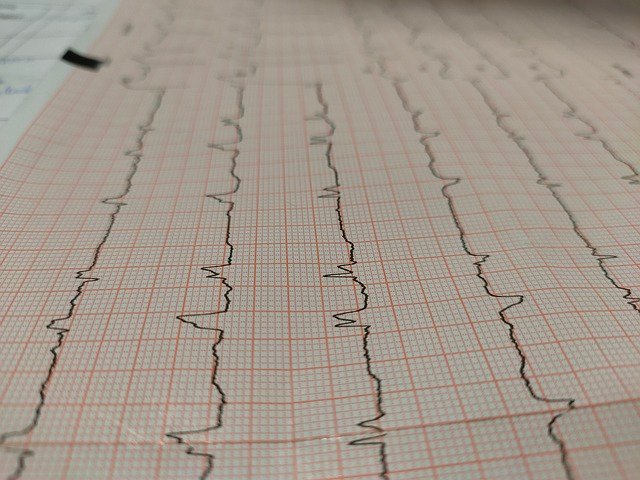Heart Failure Overview Congestive heart failure exacerbation or CCF, commonly referred to as simply heart featherless friends, is a disease in which the bad center acts comply have you got not done anything nation. It can impair either the right or left side or both sides of the heart and lead to fluid accumulation in certain tissues. Congestive heart failure is a major health concern that affects millions of people around the globe, and onset can be early in life with detection and treatment keys to managing disease progression. This article has what causes, symptoms, and how to treat congestive heart failure (CHF).

Causes of Congestive Heart Failure
Congestive heart failure exacerbation isn’t a disease in itself, but the outcome of underlying conditions that damage or overwork your heart.
The main causes include:
1. (CAD) Coronary Artery Disease
CHF exacerbation can result from a multitude of conditions, but the mutual cause is CAD. It occurs when cholesterol and fatty substances—in the form of plaques—accumulate in the blood vessels supplying the heart and make them narrow or close. This reduces the blood input to the heart, and after a while, it fails the contractile proteins of the muscle cells.
2. Blood Pressure or High Blood Pressure
Long-term high blood pressure puts a lot of pressure on your heart because it is already pumping blood from a raised level. This increased workload puts pressure on your heart muscles and can ultimately lead to heart failure.
3. A Prior Myocardial Infarction
Some of the heart muscles are damaged, making this part less efficient in pumping blood — a condition that follows a myocardial infarction, or ‘heart attack’ After a heart attack, the amount of damage done
4. Cardiomyopathy
It is the term used to reflect diseases of heart muscle thick, enlarged, or rigid heart tissue lead pumping heart fodder. They are also genetic illnesses or the effect of damage from contagions, toxins (including drugs and alcohol), and starvation.
5. Valvular Heart Disease
Heart valves help blood follow the correct path through the heart. If these valves are damaged or diseased, they can affect the heart’s ability to pump effectively, which may increase the risk of congestive heart failure exacerbation.
6. Irregular Heartbeats (Arrhythmias)
Rapid skipping or irregular, multibeat heart rhythms can impact the pumping capacity of your heart; and Such long-term or severe forms may lead to heart failure.
7. Congenital Heart Defects
Some heart defects make people born with them more likely to develop CHF at any point throughout their lives. Such problems in structure can make it difficult for the human heart to work right.
Symptoms of Congestive Heart Failure
Symptoms of CHF depend on the case of severity. The Symptoms may be very mild and virtually unnoticeable during the early stages but become pronounced as anorexia nervosa becomes severe. Common symptoms include:
1. Fatigue and Weakness
Plus, without the heart pumping in perfect rhythm, not enough oxygen or nutrients get to all parts of your body. This in return, over time results in tiredness and lack of energy — or the cumulative effect you may call ‘the last straw that broke the camel’s back”.
2. Swelling (Edema)
With CHF, there is often fluid retention which may cause swelling in the legs, ankles feet, and occasionally ascites (swollen abdomen). This is because the blood does not flow freely. Therefore fluids build up in the body tissues.
3. Rapid or Irregular Heartbeat
The heart beats more strongly and quickly as the weakened muscle is not able to pump enough blood so some people with CHF experience palpitations, rapid or irregular heartbeats.
4. Persistent Cough or Wheezing
Congestive lung disease: Pulmonary congestion may occur, with chronic cough or wheezing and the production of white/pink blood-tinged phlegm.
5. Swollen or Painful Abdomen
Amounts of fluid that build in the abdomen may create discomfort and pain, and experience loss of appetite, or nausea in naive ways.

Treatment for Congestive Heart Failure
Even though CHF cannot be cured. The early recognition and the adequate treatment of patients can significantly improve their quality of life as well as retard disease progression. This is often because talk options concentrate on handling the signs. Additionally no longer at the underlying reasons. The most common treatment alternatives involve;
1: Medications
2: Lifestyle changes
3: Surgery and medical devices
4: Heart transplant
Prevention from congestive heart failure
Congestive heart failure prevention depends on controlling the conditions that contribute to coronary artery disease. Prevention directives here accommodate some major approaches:
Control Blood Pressure:
Keeping blood pressure under control by monitoring through lifestyle or medicine is responsible for decreasing the chances of heart failure to a great extent.
Controlling Diabetes:
Controlling diabetes through diet and exercise is one of the best ways to avoid complications that could lead to CHF.
Goal 3:
Lower Cholesterol Levels (Maintaining a healthy diet, exercise, and medications can reduce the risk of coronary artery disease — one of C.H.F.’s most common causes)
Be active physically to keep your heart strong and your cardiovascular health in check.
Stop Smoking:
You should stop smoking as this damages the arteries, raises blood pressure, and contributes to the development of CHF.
Limit Your Alcohol Consumption
Drinking large amounts of alcohol can cause cardiomyopathy (a thicker heart) and eventually lead to a failing heart.
Conclusion
Congestive Heart Failure if diagnosed early, is very much manageable with proper cure. By recognizing these symptoms and being aware of the causes, more people should be able to live a better life with good management including lifestyle changes and medication. On the other hand, controlling blood pressure. Managing diabetes together with a healthy lifestyle are preventive measures for CHF.
